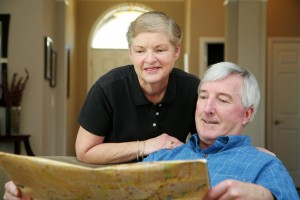During Medicare Open Enrollment, which lasts from October 15 until December 7, beneficiaries can join or switch Medicare Part D prescription drug plans. It is a good idea to review your plan during this time, because Part D plans can change how much you have to pay and what is covered, and you may want to look for a better deal. Here are some things to look for:
is covered, and you may want to look for a better deal. Here are some things to look for:
- Which drugs are covered. Make sure the prescription drugs you take are covered by your plan, and review the covered drug list for any plan you consider. Most plans have a formulary, or list of covered drugs, which may include different cost tiers. Drugs may move from one tier to another.
- Premium amount. Check to see what your premium will be for 2016 under your current plan, and make sure it is acceptable considering your out-of-pocket costs.
- Copays and deductibles. The tradeoff for a low premium may be high deductibles and copays, so you may want to shop around and compare. Keep in mind that plans may not charge a deductible higher than $320 in 2015 or $360 in 2016.
- Donut hole coverage. If you and your plan spend $3,310 on covered drugs, you enter the coverage gap. Use the Medicare Plan Finder to estimate drug costs to see when or if you will enter the coverage gap. If you need additional coverage in the coverage gap, look for plans that offer it.
- Mail-order or preferred pharmacy benefit. Consider which pharmacies you prefer and which you might be willing to use. You may be able to save money with a mail-order pharmacy or with 90-day prescriptions. Different plans may have mail-order pharmacies, preferred pharmacies or network pharmacies.
Learn more about our services by visiting www.elderlawnewyork.com.
Was this article of interest to you? If so, please LIKE our Facebook Page by clicking here.




 One of the proposed rules would allow financial advisers to wait up to 15 days to disburse funds from senior investors’ accounts if they reasonably believe that financial exploitation is occurring. The proposed rule defines a senior investor as a person who is age 65 or older, or an investor who may be vulnerable for other reasons. The rule would allow advisers to reach out to a person designated as a trusted contact.
One of the proposed rules would allow financial advisers to wait up to 15 days to disburse funds from senior investors’ accounts if they reasonably believe that financial exploitation is occurring. The proposed rule defines a senior investor as a person who is age 65 or older, or an investor who may be vulnerable for other reasons. The rule would allow advisers to reach out to a person designated as a trusted contact.

 One year after the death of Robin Williams, a legal battle over his estate continues.
One year after the death of Robin Williams, a legal battle over his estate continues.